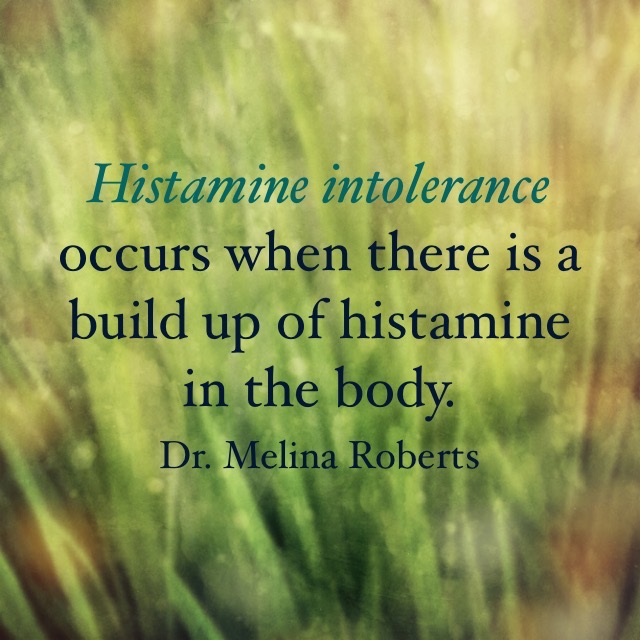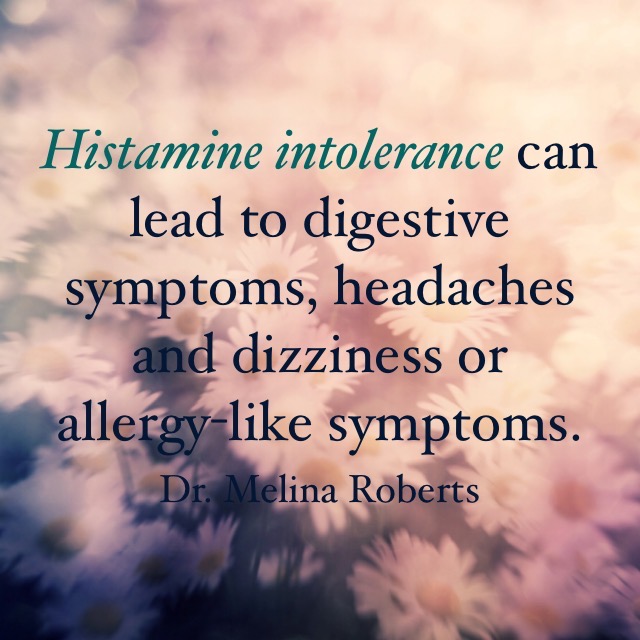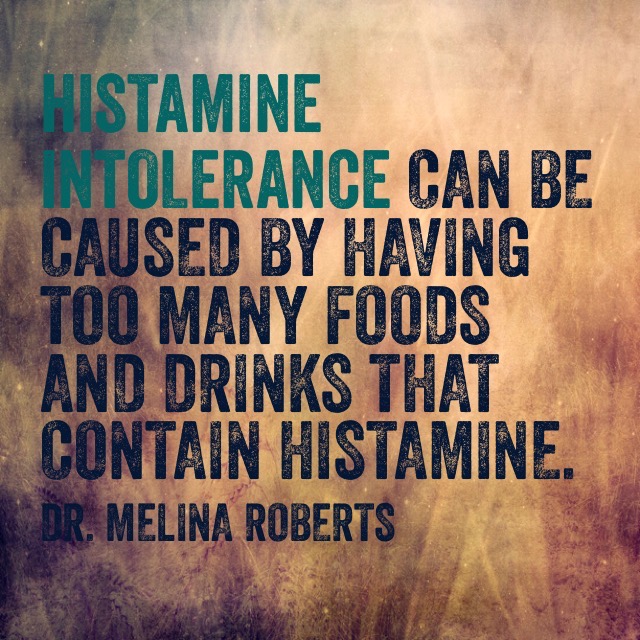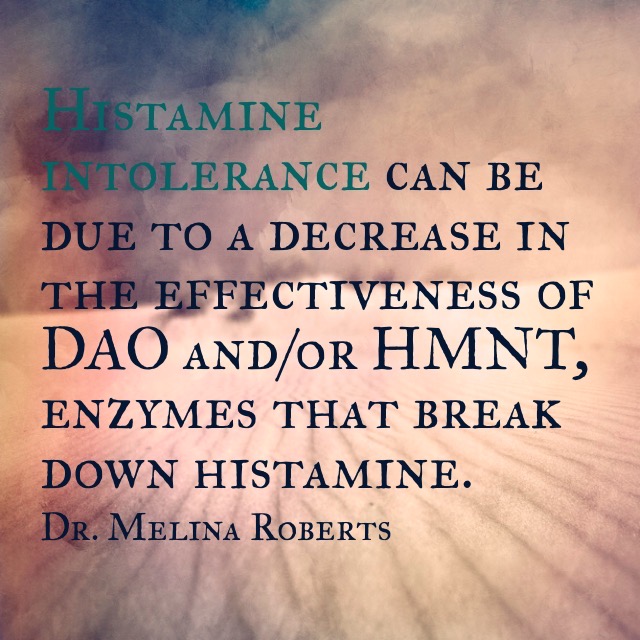Histamine intolerance occurs when there is a build up of histamine in the body.
Digestive symptoms can occur with histamine intolerance because histamine is important for helping to break down food, therefore common symptoms include diarrhea, chronic constipation, nausea and vomiting, gas or bloating, stomach cramps.
Histamine can cause blood vessels in the brain to dilate which can lead to headache and dizziness.
Histamine can also cause allergy-like symptoms such as congested runny or itchy nose, red itchy or watery eyes, sneezing, shortness of breath, hives, itchy skin, dry skin, irregular or increased heart rate,
SEVEN causes of histamine-intolerance
- Can be caused by having too many foods and drinks that contain histamine. Food or drinks rich in histamine are alcohol, aged cheese, canned pickled or fermented foods, smoked meats, legumes, vinegar, yogurt, citrus foods, tomatoes.
- Can be due to a decrease in the effectiveness of diamine oxidase or DAO, the primary enzyme that breaks down ingested histamine.
- A decrease in the effectiveness of histamine-N-methyltransferase or HNMT, an enzyme that helps to break down histamine within cells.
- Many kinds of bacteria can produce a type of histamine in the gut.
- Some medications can interfere with DAO and HMNT levels including heart medications, antibiotics, antidepressants, diuretics, muscle relaxants, pain medications, GERD medications or alcohol,
- Due to deficiencies in vitamin B6, vitamin C, copper, or zinc.
- Compromised gut lining.




